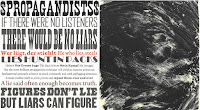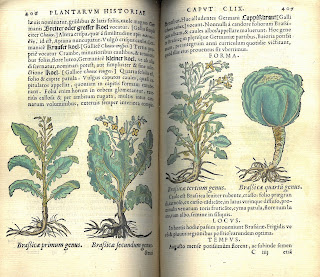 The word GREED is printed in bold black letters down the golden spine and all over the golden cover of this stunning little square book. Inside, the pages are filled with lithographs made by Claire Van Vliet and printed by Eystein Hance-Olsen at SKHS in Oslo on Zerkall Butten paper. Published by the Janus Press in Vermont in 2013, this handsome volume is one of many that belong to Rauner Library's Presses collection. The collection itself is truly amazing, spanning nearly the entire history of printing in the West, from the Aldine Press in the late 1400s to artists' books printed this very year.
The word GREED is printed in bold black letters down the golden spine and all over the golden cover of this stunning little square book. Inside, the pages are filled with lithographs made by Claire Van Vliet and printed by Eystein Hance-Olsen at SKHS in Oslo on Zerkall Butten paper. Published by the Janus Press in Vermont in 2013, this handsome volume is one of many that belong to Rauner Library's Presses collection. The collection itself is truly amazing, spanning nearly the entire history of printing in the West, from the Aldine Press in the late 1400s to artists' books printed this very year.
Van Vliet's book is an artistically powerful tour de force that decries the sort of greed and corruption that caused the Great Recession. The book contains four lithograph portraits, each representing a group of people intertwined with power, wealth, and exploitation: Propagandists, Lobbyists, Bankers, and Joe Public. On the facing page, various adages and details outline the vices that have perpetuated the suffering of the 99%. Some of the quotations that seem especially relevant to our current political situation are found on the page for Propagandists: "A lie said often enough becomes truth" and "Lies hunt in packs" are particularly apropos.
To look at Greed, come to Special Collections and ask to see Presses J268vagr.



